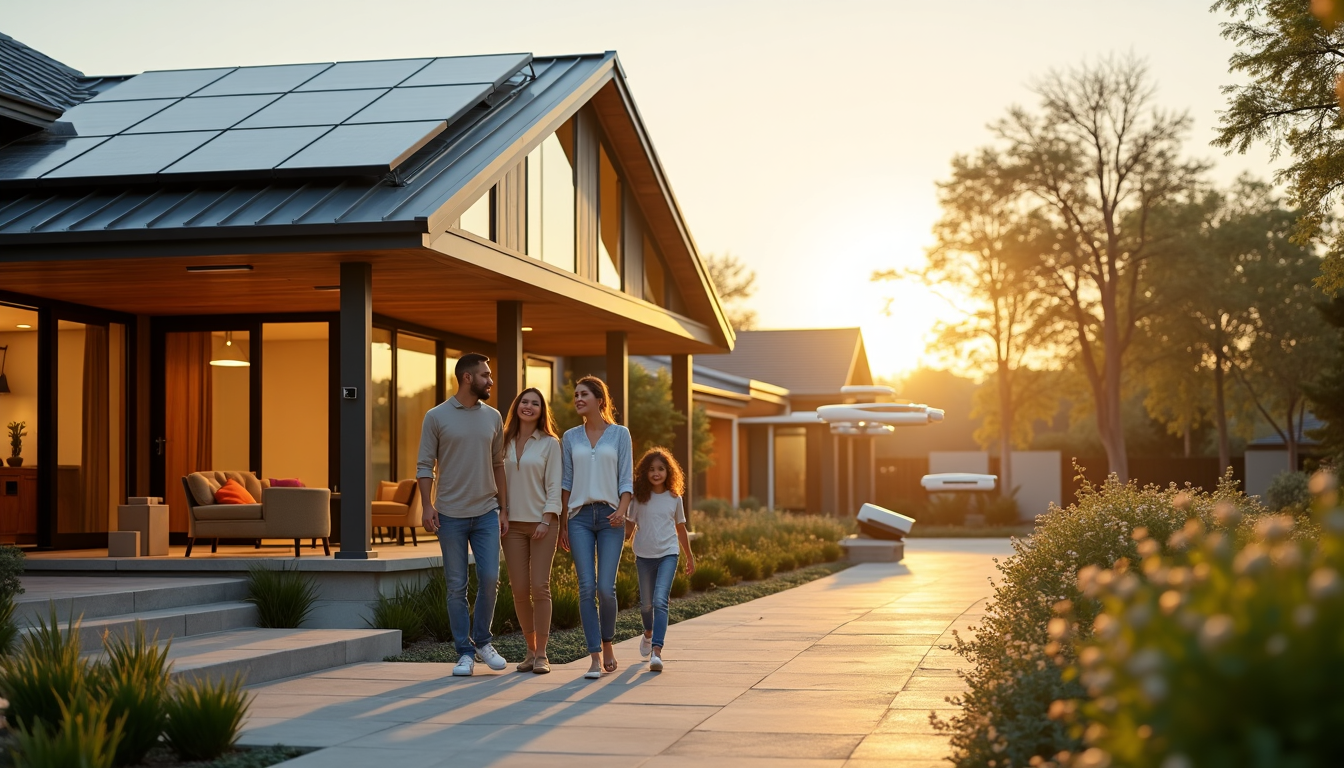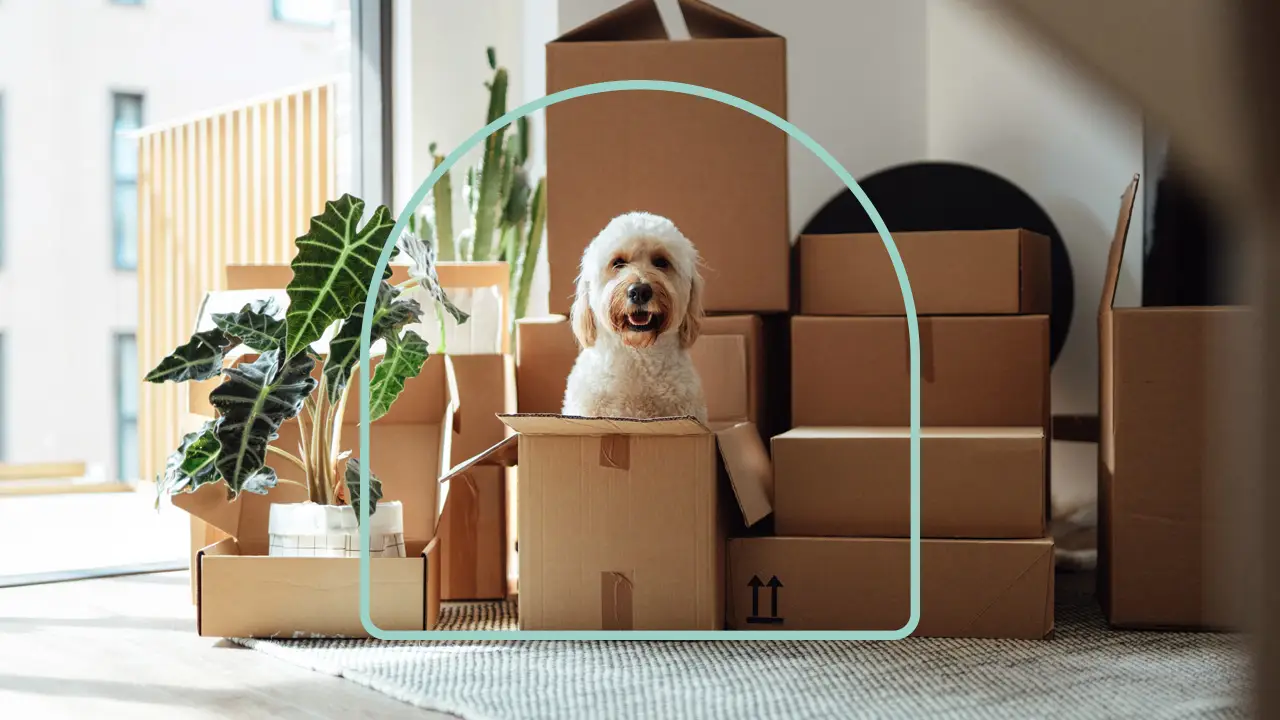Home Sweet Move: Your Essential Guide to Buying and Moving in 2025
Ready to make your big move in 2025? The changing market dynamics and new housing trends mean you need to think over your home purchase and moving plans.


Ready to make your big move in 2025? The changing market dynamics and new housing trends mean you need to think over your home purchase and moving plans.
The digital world of real estate keeps evolving, bringing fresh opportunities and challenges for homebuyers. Interest rates fluctuate, while regional price patterns show new trends. These factors will guide your decisions about your future home purchase.
This piece takes you through the essentials of buying a home and moving in 2025. Market predictions, financial planning strategies, house hunting tips, moving logistics, and new space setup - you'll find everything you need to prepare for this most important life change.
Understanding the 2025 Housing Market Landscape
The 2025 housing market shows a changing scene with new opportunities for homebuyers. Here's what you can expect as you start your house-hunting trip.
Current market trends and predictions
The housing market in 2025 shows signs of stabilization. Mortgage rates should settle around 6%. This new normal brings some relief compared to recent years' volatility. Here's what 2025 looks like:
- Home prices should go up by 2% nationally
- Existing home sales could reach 4.5 million
- The median existing home price might hit $410,700
Regional price variations and hotspots
Your location will affect your homebuying experience in 2025 by a lot. The Sunbelt region leads market growth, and Florida shows strong performance. You can find better deals in areas with rising inventory levels, which helps balance local markets.
Housing supply is getting better. Inventory levels should rise throughout 2025. New construction projects and existing homeowners listing their properties as market conditions stabilize contribute to this improvement.
Effect of economic factors on home prices
Economic factors will shape your house-hunting experience in 2025. Job growth stays strong, with nearly 2 million new jobs in the pipeline. This employment growth and continued income increases will influence housing demand and prices across regions.
The Federal Reserve's monetary policy is a vital part of shaping the market. Federal deficits and rising public debt might limit rate reductions. Borrowing costs should stabilize, which gives you more predictable conditions to plan your purchase.
Mortgage rates below 6.5% mean the qualifying income needed for a median-priced home drops below $100,000. This change could make homes available to about 6.2 million households who couldn't afford them before.
Note that national trends give you the big picture, but local market conditions will determine your homebuying experience. Some areas might see price drops while others keep growing strong. Research specific areas where you plan to buy to make the best decision.
Smart Financial Planning for Your Home Purchase
Smart financial planning will help you buy a home successfully in 2025. Let's look at ways to get your finances ready for this substantial investment.
Mortgage options and rates in 2025
Mortgage rates should stabilize in 2025, and forecasts indicate rates will stay above 6% throughout the year. The rates have dropped from recent peaks, and you should know your mortgage options:
- Conventional Loans: Require a credit score of 620 or higher
- FHA Loans: Available with just 3.5% down payment
- USDA Loans: Ideal for rural properties with no down payment
- VA Loans: Excellent options for qualified veterans
Down payment strategies and assistance programs
Your down payment approach can substantially affect your success in buying a home. High-yield savings accounts now offer returns up to 5.50% APY, which makes them great tools to grow your down payment fund. A $25,000 deposit can earn about $105 monthly in interest.
Down payment assistance programs in your area are worth checking out. The Home Purchase Assistance (HPAP) program gives up to $202,000 in gap financing plus $4,000 in closing costs assistance to qualified applicants. First-time buyers earning at or below 80% of the Area Median Income can get grants up to $30,000 through the Homebuyer Dream Program.
Building an emergency fund for homeownership
A reliable emergency fund should come before your home purchase. Financial advisors suggest saving three to six months of living expenses, and an extra 1% to 3% of your home's value for repairs. A $500,000 home would need $5,000 to $15,000 set aside for potential repairs.
Your emergency fund should stay in a separate savings account from your down payment money. This dedicated reserve helps you handle unexpected costs like:
- Major appliance replacements
- Emergency repairs
- Property tax increases
- Insurance adjustments
Your emergency fund needs regular maintenance even after buying your home since homeownership brings unexpected expenses. Automatic transfers can help you build both your down payment and emergency funds simultaneously.
Mastering the House Hunting Process
Finding your perfect home in 2025 needs a clever mix of technology and time-tested house-hunting wisdom. Let me show you how to make your search quick and successful.
Leveraging technology for property search
Real estate technology has altered the map and given you powerful tools for your home search. AI-powered platforms analyze property data to match you with homes that fit your needs. Virtual reality tours have become a revolutionary force that lets you explore properties from anywhere and save time during your search.
Smart property search platforms use predictive analytics to help you spot promising properties and gage market conditions. These tools look at your budget, preferred areas, and lifestyle needs to create a customized property shortlist.
Working with real estate professionals
A real estate agent will be your greatest ally in the 2025 market. You should look for someone with deep local market knowledge and strong communication skills. A skilled agent brings you:
- First access to upcoming listings
- Knowledge about local market conditions
- Skills in negotiation
- Support through the entire buying process
The industry has changed, and you can now negotiate agent fees directly. This openness helps set clear expectations right from the start.
Evaluating neighborhoods and future growth
Your choice of neighborhood will affect both your lifestyle and property value. Here are the vital factors to watch:
- Community Features: The area's looks and public spaces should be well-kept
- Accessibility: Services and daily conveniences should be easy to reach
- Safety Metrics: Local crime statistics and safety indicators matter
- Future Development: New homes, parks, schools, or businesses in the pipeline
- School Quality: Good schools boost property values, even without kids
HomeFacts.com gives you detailed statistics about any area, including environmental concerns and foreclosure rates. NeighborhoodScout.com helps you learn about crime rates and school performance.
Watch for signs that show if a neighborhood is growing or declining. New construction projects, property maintenance, and the balance between owner-occupied homes and rentals tell you a lot. These elements will shape your property's future value.
Planning Your Move Timeline
Planning your move in 2025 needs proper planning and the right timing. Let's look at the key parts of your moving timeline that will help you move smoothly to your new home.
Coordinating closing dates with moving schedules
You should start planning your move once you have a tentative closing date. Moving experts say you should begin preparations 8-12 weeks before your target date. Early planning helps you get better rates and manage your time well.
The best way to handle closings is to schedule both transactions within a few days of each other to avoid problems. Here are some helpful timing tips:
- Stay away from Friday or month-end closings when title companies are swamped
- Keep a 2-3 day buffer between closings for delays
- Stay in touch with your real estate agents and closing team
- Look into temporary storage if closing dates don't match up
Hiring professional movers vs. DIY options
Your choice between professional movers and DIY moving will affect your budget and stress levels by a lot. Professional moving services in 2025 start at $65 per hour per mover, with a two-hour minimum. Flat rates range from $400 to $10,000, based on size and distance.
The DIY route costs $500 to $800 for truck rental, packing supplies, and gas. Here's what you should think about before deciding:
- Professional Moving Benefits:
- Expert crews load and unload quickly
- Your belongings are insured
- You save time and physical effort
- You get professional equipment and expertise
Creating a detailed moving budget
Your moving budget should cover all possible expenses while leaving room for surprise costs. Many luxury buildings need a Certificate of Insurance from professional moving companies, so add this to your plan.
Your budget should include:
- Moving company quotes or truck rental costs
- Packing materials and supplies
- Insurance coverage
- Storage fees if needed
- Transportation costs
- Utility transfer fees
Pro Tip: Get complete written quotes from several moving companies and read the fine print about extra fees carefully. The lowest quote isn't always the best - some companies might cut corners with equipment, workers, or insurance to offer very low prices.
Professional movers charge around $65 per hour per mover, plus travel fees. You can cut labor costs if you move smaller items yourself and hire movers just for heavy stuff. Note that 2025 moving costs might change due to new tariffs on moving equipment and vehicles, so keep some extra money in your budget.
Setting Up Your New Home
Your new house becomes a home when you get the basics right. Here's how to turn that empty space into a cozy, secure living environment you'll love.
Essential utilities and services setup
You should reach out to utility providers 3-4 weeks before moving in. These companies need time to process your request and get services running. Here's a detailed checklist to help you:
- Electricity and gas service
- Water and sewer connection
- Internet and cable setup
- Trash collection services
- Phone service (if needed)
Pro tip: Get your utilities activated a day before you move in. This ensures everything runs smoothly when you arrive. Book internet and cable installation appointments early since technicians need access to your home.
Home security and smart technology installation
Smart home setup starts with picking the right ecosystem. Google Home, Amazon Alexa, and Apple HomeKit are your main choices. Here's what you need to think over while setting up your smart home:
- Good Wi-Fi coverage throughout your house
- Device testing before final installation
- Room-based device grouping to control better
- Multi-factor authentication to boost security
Home security monitoring services start at $19.99 monthly. Modern systems come with video verification and two-way communication features. SimpliSafe offers flexible DIY options with monthly plans you can switch on or off.
Organizing your space efficiently
The "take 10 before bed" method helps create a tidy living space. Just spend 10 minutes each night to clear countertops and common areas. An "everyday caddy" with frequently used items can speed up your morning routine.
The "one in, one out" rule works great to prevent clutter. Replace old items with new purchases to keep your space organized from day one. Tech organization becomes easier with Command hooks for cord management behind furniture. Docking drawers are another option for a cleaner look.
Smart Setup Tip: Your smart devices can handle daily tasks through automated routines. These routines adjust thermostats and control lights, which helps manage energy use better.
Note that everyone should understand your home's organization system, especially when family or roommates are present. Good labeling and consistent methods help maintain the space.
Conclusion
The process of buying and moving to a new home in 2025 might seem daunting at first. Breaking down the process into smaller steps makes everything more manageable. The market shows promising signs of stability, with rates hovering around 6% and better inventory levels creating good conditions to buy your dream home.
A solid financial plan paves the way to success. You should start building your down payment and emergency funds right away. Research assistance programs that fit your specific needs. Modern house-hunting tools combined with expert guidance will help you find the perfect property.
Proper timeline planning and budgeting will ensure a smooth move. Professional movers can reduce your stress and save precious time, though DIY options work well if you're watching your budget. A systematic approach to setting up utilities, security systems, and smart home features will help you feel at home faster.
Want a stress-free move in 2025? Drifted.ai eliminates upcharges, hidden fees, and moving disasters. We guarantee a smooth, transparent, and reliable moving experience backed by our Drifted Guarantee. Booking your move is as simple as planning a trip on Kayak or Expedia. The best part? You'll never need to talk to a salesperson unless you want to. Let's make your next move your best one. Visit Drifted.ai today to begin!
This knowledge and proper preparation will help you guide your 2025 home purchase and move with confidence. Early action and staying on top of the process will soon have you turning the key to your new home.
FAQs
Q1. What should I do to prepare for buying a home in 2025? Start by saving money for a down payment and closing costs, improving your credit score, and researching the housing market in your desired area. Getting pre-approved for a mortgage closer to your purchase date and exploring first-time homebuyer programs is also a good idea.
Q2. How much should I save for a down payment? While 20% is ideal to avoid private mortgage insurance (PMI), you can buy a home with as little as 3-5% down. Save as much as you comfortably can, but don't forget to set aside funds for closing costs, moving expenses, and unexpected home repairs.
Q3. What factors will affect the housing market in 2025? Mortgage rates, inventory levels, economic conditions, and regional price variations will likely influence the 2025 housing market. Keep an eye on these factors as you plan your purchase, as they can impact home prices and affordability.
Q4. How can I find the right neighborhood for my future home? Research different areas by attending open houses, exploring neighborhoods at various times, and considering factors like commute times, school districts, and local amenities. This will help you identify areas that fit your lifestyle and budget.
Q5. Should I work with a real estate agent when buying a home? It depends; working with a knowledgeable real estate agent can benefit. They can provide valuable insights into local market conditions, help you navigate the buying process, and potentially give you access to listings before they hit the market. However there are new and reliable platforms that save you thousands in the home buying process such as reAlpha and Flyhomes and should be explored.

